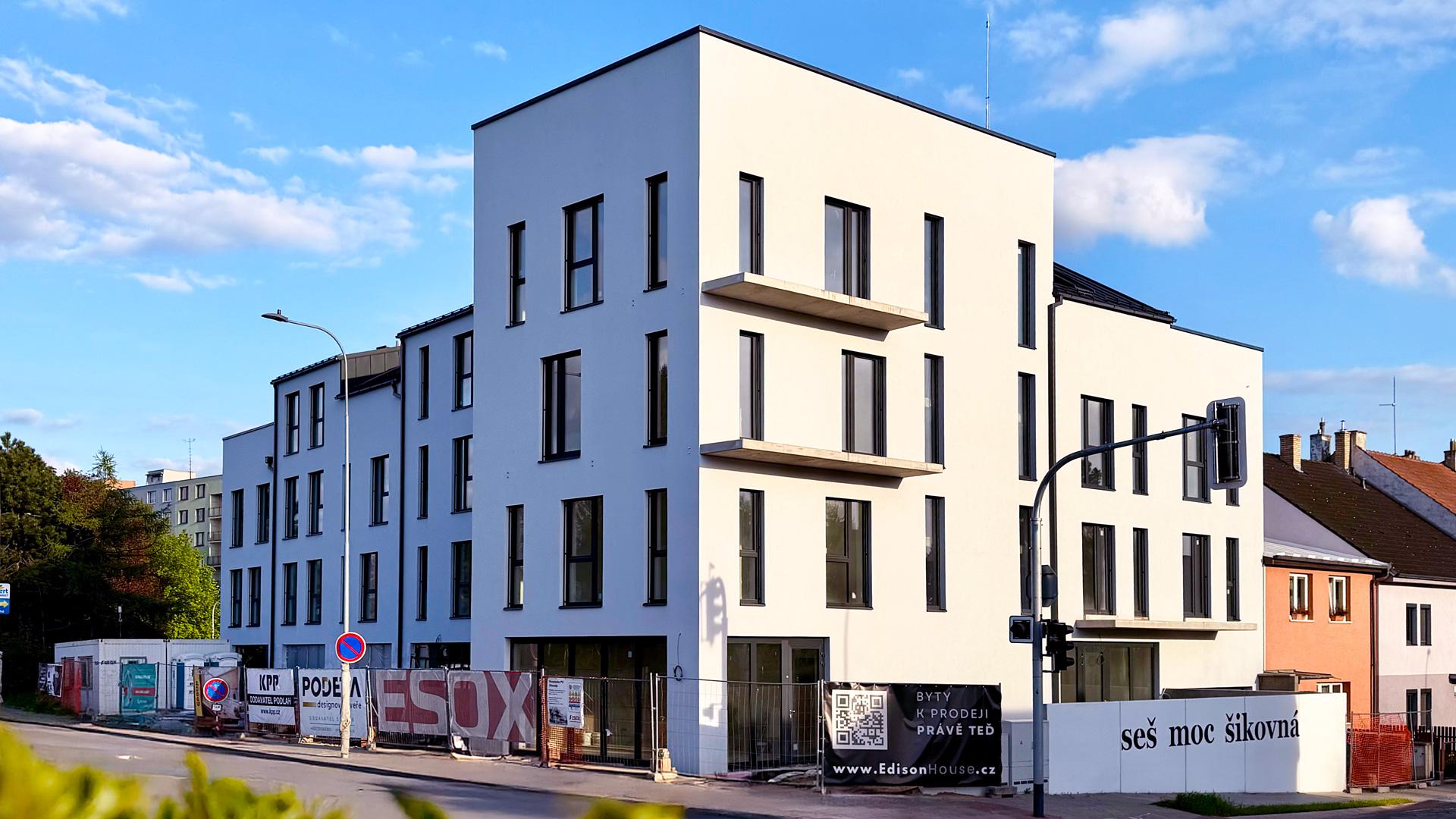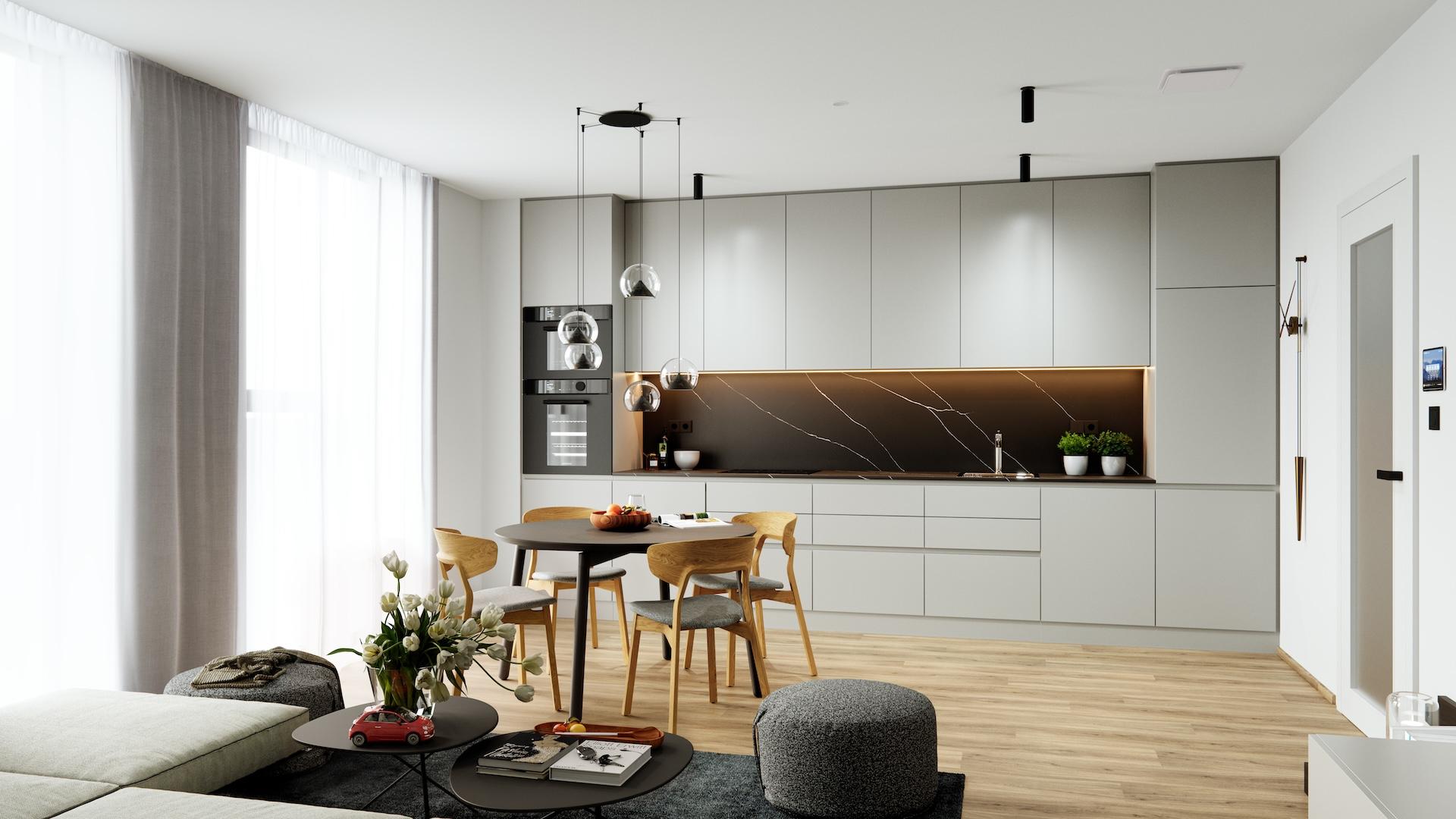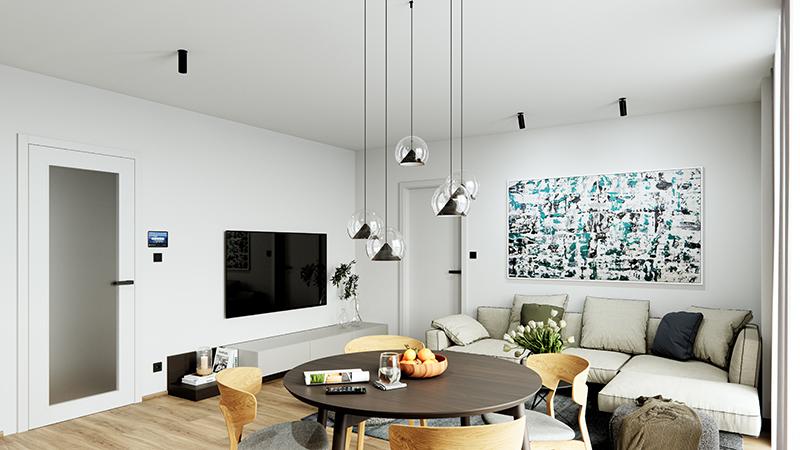Smart Housing Projects Gain Momentum Across Central Europe
Brno’s Edison House, a recently completed residential scheme in the Bohunice district, highlights how Central Europe’s housing market is steadily embracing smart technology at a building-wide scale. The development integrates a full automation system coordinating renewable energy sources, shading, ventilation, and access control. Alongside comfort and safety features, the technology is designed to deliver measurable energy savings for residents, while preparing the building for future trends such as electric mobility.
Similar approaches are emerging across the region. In Prague, the Fragment complex in Karlín has set a benchmark for rental housing with integrated automation across all apartments, while other capital-city projects are upgrading existing blocks with smart entry and lighting systems. Warsaw has seen new residential estates adopt platforms like Grenton to manage climate and lighting, with developers increasingly using “smart” features as a selling point for both owner-occupiers and investors.
Budapest, meanwhile, is advancing larger-scale estates where automation is paired with energy-efficient systems such as ceiling-based heating and cooling. Some projects are specifically marketed around the combination of “green and smart” living, aiming to balance affordability with the growing expectations of younger buyers. Vienna’s Aspern Seestadt, a major urban extension, demonstrates what can be achieved at district level, where entire neighbourhoods use shared energy management systems to integrate photovoltaics, heat pumps, and storage technologies.
What sets Edison House apart is the depth of its integration. Rather than offering individual apartments with optional smart packages, the entire building is designed around automation as a core operating layer. This allows renewable energy, shading, and climate systems to be coordinated for maximum efficiency. Safety measures, such as keyless entry and automated leak detection, extend the appeal to residents who value practical security alongside lower running costs.
Across Central Europe, the direction is clear: smart features are shifting from niche extras to baseline expectations. For developers, the challenge will be less about adding individual gadgets and more about embedding whole-building management systems that deliver long-term savings and sustainability. Edison House, together with other pioneering projects in Prague, Warsaw, Budapest, and Vienna, shows that this transformation is already underway.











